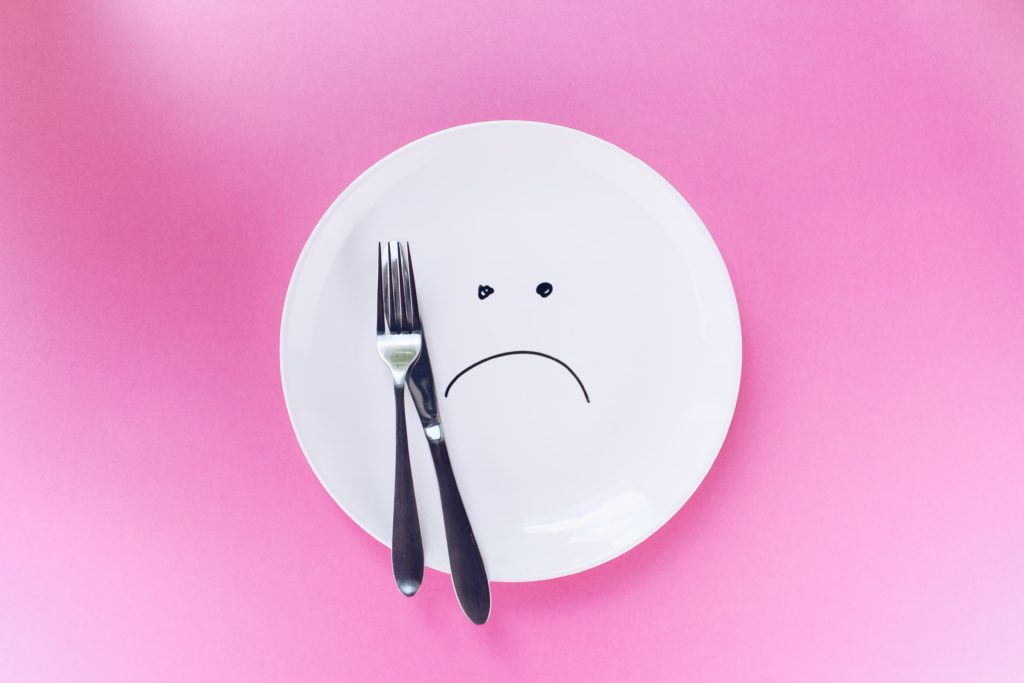Why Diets Don’t Work: Satisfying Your Food Cravings the Healthy Way
Why Diets Don’t Work: Satisfying Your Food Cravings the Healthy Way
Categories: AACC BLOG

by Rhona Epstein, Psy.D.
It’s not entirely true that diets don’t work. Plenty of people lose weight on diets. They can list all the times they followed some type of weight loss plan—low carb, low fat, Keto, Medifast®, weight loss surgery, intermittent fasting, fruit only—and lost 10, 20, and even 50 pounds. Although some people found success dieting when they were younger, as life progressed with increased stressors or disappointments from unmet weight-loss goals, the desire to even attempt dieting diminished. Dieting can be exhausting, and who feels like doing all that hard work when weight loss is likely only temporary? The problem isn’t necessarily that diets don’t work. The problem is that most diets aimed at weight reduction do not bring sustainable change.
It is a familiar cycle… people get upset with their weight and become preoccupied with “needing” to get rid of the excess now. Tapping into the diet culture is incredibly easy. It lures people into thinking there’s a magic cure they need to try based on very convincing evidence. If you read about any popular diet, there is always a compelling reason why this one will change everything. People who struggle with weight issues and body image obsessions will often do almost anything to find relief, even if it seems irrational to those around them or themselves. Usually, it isn’t rational. We have all heard the definition of insanity—doing the same thing over and over expecting different results. I hear the same excuses in my office all day long: “I can’t wait for a slower, steadier lifestyle change”… “I have to get the weight off fast because of how I look”… “because of my health….” To defeat this problem, you need a different solution.
Let’s look at the statistics regarding diet and weight loss in America. Almost 40% of U.S. adults are considered obese, and 18.5% of children are overweight.1 Rates of female obesity are 4% higher than that of men, and women are more likely to become severely obese.2 Despite an increase in money spent on the diet market with each passing year, obesity statistics continue to rise across the board.
A long-term study done at UCLA analyzed 31 major diets. Their analysis found that simply put, diets do not work. Their studies showed that generally people lose 5-10% of their body weight initially, but the majority gains the weight back, plus more.3 Unsurprisingly, sustained weight loss was seen in only a small minority of the study. I often ask people about this phenomenon, and they consistently disregard it despite it being common knowledge. The lure of the quick fix is ever-present, even when research refutes it without variation.
So what’s the real problem? And, more importantly, what can we do about it? Unsurprisingly, emotional fac- tors are involved; to what extent depends on the person. You do not need to have experienced severe trauma to have a dysfunctional relationship with food and weight, but there is a high correlation between the two. Food is a soothing substance most of us can reach for from an early age. It is legal, accessible, easy to get hooked on, and vital for survival. When there is stress at home, school, or in relationships, food is right there. It relaxes the mind and numbs the pain people crave relief from during difficult times. The emotional fix becomes stronger than the need to be thin, and therein lies the battle between food and weight. There are further issues with how food works in our bodies. Certain foods are particularly addictive, and certain eating behaviors and habits perpetuate the problem. It is essential to distinguish the particular triggers—behavioral, emotional, and spiritual—that set off each person’s issues with food. If someone is an emotional eater, then he or she needs to learn alternative ways to manage emotions without food. Developing an eating plan will help keep food and feelings separate, delineating a clear difference between planned meals and food abuse.
It takes time to establish boundaries, especially since the pairing of food and feelings typically starts quite young. Patience is needed to distinguish between an internally emotional experience and a desire for food. If there is an addiction, it is best to abstain from foods that seem to glow, call your name, and hinder your ability to stop. Instead, it may be essential to exclusively eat healthy, satisfying, and whole foods in a consistent, moderate plan. If someone is battling 24/7, his or her trouble will not disappear with a weekly therapy session. Support groups are invaluable. A coach, therapist, or nutritionist is also beneficial.
Restricting food itself has been found to lead to binge eating and overeating. One of the newer approaches to weight loss includes intermittent fasting. For someone without food issues, this (or any diet) may work for a time, but restricting food on a regular basis has been found to lead to obsession and compulsive behavior. It may produce weight reduction at the expense of your sanity, eventually turning into an eating disorder or weight gain.
Of course, other factors also come into play. Spiritually, food can become your God. It is the great go-to for all things, but eventually guilt creeps in over the loss of control and shame pushes God away. Instead of finding strength and hope for change by understanding His redemptive work on the cross, we run away because we feel we aren’t godly enough or are disappointing Him. This can lead to feeling even worse than when our troubles first began. Only God can set us free… and only His love will fill the empty places we have been substituting with food. God is the answer. Winning the battle is not possible without Him.
The healthiest plan is the long-term one of eating satisfying, healthy foods and exercising moderately. Our tendency will always be to go back to our old ways unless we have a plan in place to keep ourselves moving forward, day by day and step by step. In order to cultivate lasting change, our goals need to shift from fast fixes to a balanced, lifetime relationship with food and weight. It is a significant shift, but one that is entirely possible with God.
Endnotes
1 (n.d.). Retrieved February 21, 2020, from https://www.tfah.org/ report-details/stateofobesity2019/.
2 Hales, C.M., Carroll, M.D., Fryar, C.D., & Ogden, C.L. (2017, October). “Prevalence of obesity among adults and youth: United States, 2015-2016.” PDF. Hyattsville, MD.
3 Wolpert, S. (2019, May 10). Dieting does not work, UCLA researchers report. Retrieved February 21, 2020, from https:// newsroom.ucla.edu/releases/Dieting-Does-Not-Work-UCLA- Researchers-7832.

Rhona Epstein, Psy.D., is a licensed psychologist, addictions counselor, and marriage and family therapist in the Philadelphia area. She is the author of Food Triggers: End Your Cravings, Eat Well, and Live Better (Worthy Publishing) and Satisfied: A 90-Day Journey Toward Food Freedom (Dexterity Publishing). For more than 30 years, Rhona has lead seminars, conferences, and therapeutic workshops to help people overcome food addiction and its underlying issues. She received her doctorate in clinical psychology from Chestnut Hill College, and her master’s degree in counseling psychology from Temple University. Rhona is passionate, from her personal experience and recovery from food addiction, to address the needs of the whole person (mind, body, and spirit).
This article originally appeared in Christian Counseling Today, Vol. 24 No. 2. Christian Counseling Today is the flagship publication of the American Association of Christian Counselors. To learn more about the AACC, click here.
